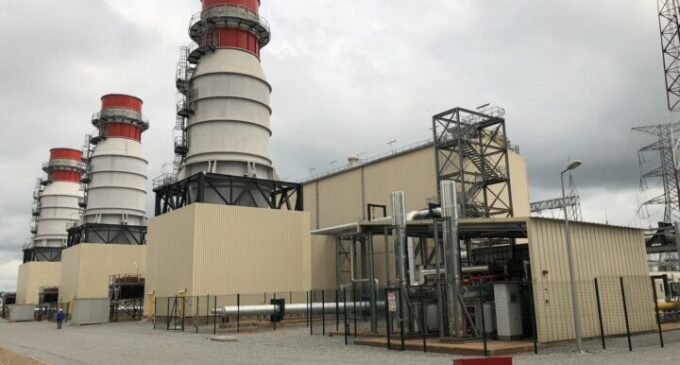Reps panel queries $30m ‘take or pay’ deal with Azura, says it fails to bolster power supply

The house of representatives committee on finance has frowned upon the $30 million “take or pay deal” reached with investors on the Azura power plant.
James Faleke, chairman of the committee, at the public hearing in Abuja on Friday, expressed concerns that Nigerians were not getting value for the money paid by the government.
Under the pull call option agreement (PCOA), Nigeria is expected to pay a mandatory monthly fee ranging from $30 million and $33 million to Azura for power generated, whether power is transmitted or not through the national grid.
Speaking at the investigative hearing, Faleke said NBET signed the contract without federal executive council (FEC) approval and against the advice of Abubakar Malami, minister of justice.
The Nigerian Bulk Electricity Trading (NBET) is the federal government-owned guarantor that buys electricity from generating companies (GenCos) and resells to distribution companies (DisCos).
The lawmaker said Nigeria was in a situation where there was low revenue generation and high financial commitments, adding that some of the agreements were bound by law — making it difficult for the country to pull out.
“We are interested to know if the officers in charge of these agencies who sign these contracts on behalf of Nigerians, took the necessary things into consideration,” Faleke said.
“The power sector has been unable to meet the demands of Nigerians, we have heard of all types of bailouts that the CBN had made without any changes in the power Nigerians receive.
“There are two ‘take-or-pay’ agreements that we hear exist in the power sector.
“As we understand it, it means a government agency here signed an agreement with an investor for a fixed amount of commodity; gas for power companies or power to supply to Nigerians.
“In very simple terms, what this means is that, whether the amount the agency signs to take is taken or not, the agency still pays that investor for the fixed amount signed for.
“If it is gas, if the companies did not take the gas as provided, the government agency pays for it as though the government agency took the contracted quantity.
“If it is power, whether the investor supplies or not, the government agency pays the investor for the full amount it signed for in that agreement “
Faleke said an investor must have carried out survey to be sure consumers were available before investing.
He added that there was no need to bear the risk of buying the power from investors and selling it to consumers.
“We provided support. We are still where we are today. We have millions of Nigerians out of jobs, out of school but no job. We have no power to provide jobs,” he said.
“That is why I asked you, are you satisfied with the value for money, when we have no power for industries to be established? Why are we paying such money?
“My expectation would be that you have provided power for the Nigerian market and businesses are booming, or an industrial area in a particular state and industries are booming; but the power is not there.”
Consequently, the chairman ruled that the NBET should furnish the committee with details of all agreements signed and the proof of payment made by the agency.
He also ruled that the Transmission Company of Nigeria (TCN) should provide details of the volume of electricity transmitted from the Azure Power Plant.
Faleke further directed that a link to all documents and agreements that would be presented by agencies at the hearing should be made available on NBET’s website to properly inform Nigerians.
FEC APPROVAL NOT REQUIRED FOR CONTRACT
Responding to the committee’s interrogations, Emeka Eweluka, managing director, NBET, said of the ‘take or pay’ agreement, the investor took the entire risk of making a multi-million dollar investment in the country with the knowledge that the investment could become stranded.
He said for the investor to protect the fixed investment made, that could not be carried out of the country, there was an assurance that the investor would build a power plant while the government would sort the transmission needed.
According to him, when power produced by the investor is taken and utilised by Nigerians or not, the government pays for the power generated in line with the contracts.
Eweluka said Nigeria had signed no fewer than 25 power-related contracts, one of which was the “take or pay deal” with Azura, in which Nigeria pays about $30 million monthly for power.
He said the Azura agreement was signed in 2014, revisited in 2015 and 2017 and became operational in 2018, adding that it had a lifespan of 20 years.
He said NBET did not require FEC’s approval to enter into such contract, irrespective of the N2.5 million approval limit for the office of the managing director.
Eweluka also acknowledged that the arbitration for some of the contracts was domiciled abroad and that the World Bank was the guarantor of the agreements under the auspices of Zainab Ahmed, minister of finance.
TheCable had reported that Nigeria paid $137 million in two years for unutilised gas and electricity in the ‘take or pay deal’.















There are no comments at the moment, do you want to add one?
Write a comment